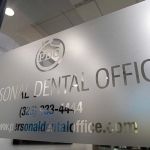Periodontal Disease Prevention: How to Protect Your Gums and Teeth
Periodontal disease, commonly known as gum disease, is a prevalent condition affecting millions of people worldwide. This serious gum infection can damage the soft tissue and bone supporting the teeth, leading to tooth loss if not treated properly. However, the good news is that periodontal disease is preventable with the right habits and regular care. In this article, we will explore effective strategies for periodontal disease prevention, from daily oral hygiene practices to professional dental visits.
- 1. Why Oral Hygiene is Crucial in Preventing Periodontal Disease
- 2. The Role of Diet in Gum Health
- 3. Professional Dental Care and Its Importance
- 4. Lifestyle Factors and How They Affect Your Gums
- 5. Common Signs of Periodontal Disease You Shouldn’t Ignore
- 6. Periodontal Treatment Options if Prevention Fails
1. Why Oral Hygiene is Crucial in Preventing Periodontal Disease
Good oral hygiene is the foundation of preventing periodontal disease. The primary cause of gum disease is the buildup of plaque, a sticky film of bacteria that forms on your teeth. If not removed by brushing and flossing, plaque can harden into tartar, which can only be removed by a dentist or dental hygienist. Regular brushing with fluoride toothpaste and flossing between your teeth helps prevent plaque accumulation, making it easier to maintain healthy gums.
Brushing your teeth twice a day and flossing at least once daily removes food particles and plaque, reducing the risk of infection. Additionally, using an antimicrobial mouthwash can help reduce bacteria in your mouth. Make sure to use the right technique while brushing and flossing to maximize their effectiveness in periodontal disease prevention.
2. The Role of Diet in Gum Health
What you eat plays a significant role in the health of your gums. A well-balanced diet rich in vitamins and minerals supports the immune system, helping it fight off infections that can lead to periodontal disease. Foods high in vitamin C, such as citrus fruits and leafy greens, are particularly beneficial for gum health, as they help strengthen the connective tissue in your gums.
Avoiding sugary foods and drinks is equally important, as they fuel the bacteria that cause plaque buildup. Instead, focus on eating whole grains, lean proteins, and fruits and vegetables to nourish your gums and reduce inflammation. Drinking plenty of water also helps wash away food particles and bacteria, keeping your mouth clean and fresh.
3. Professional Dental Care and Its Importance
While brushing and flossing at home are essential, professional dental care is also critical in preventing periodontal disease. Regular visits to the dentist for cleanings and checkups ensure that any plaque or tartar buildup is removed, which cannot be done at home. Your dentist can also detect early signs of gum disease and provide treatment to prevent it from worsening.
In addition to cleanings, your dentist may recommend scaling and root planing, a deep cleaning procedure designed to remove tartar and bacteria from below the gumline. Early intervention is key to preventing serious gum damage, so it's important to keep up with regular dental visits every six months.
4. Lifestyle Factors and How They Affect Your Gums
Several lifestyle factors can influence your risk of developing periodontal disease. Smoking, for example, is a significant risk factor, as it weakens your immune system and makes it harder for your gums to heal. If you're a smoker, quitting can significantly improve your gum health.
Stress is another contributing factor. High stress levels can increase the body's production of hormones that may exacerbate inflammation in the gums, making them more susceptible to infection. Managing stress through relaxation techniques, exercise, and adequate sleep can help maintain healthy gums.
5. Common Signs of Periodontal Disease You Shouldn’t Ignore
It’s crucial to recognize the early signs of periodontal disease to prevent further damage to your gums and teeth. Common symptoms include swollen or bleeding gums, persistent bad breath, receding gums, and loose teeth. If you notice any of these signs, it’s important to see a dentist as soon as possible for evaluation and treatment.
Don’t wait for symptoms to worsen. Early detection of periodontal disease is key to preserving your oral health and preventing tooth loss. Regular self-exams at home, along with professional checkups, can help catch gum disease before it progresses.
6. Periodontal Treatment Options if Prevention Fails
Despite your best efforts to prevent periodontal disease, sometimes it may still develop. If this happens, there are several treatment options available to manage the condition and restore gum health. In addition to scaling and root planing, more advanced treatments may include pocket reduction surgery or gum grafts.
If you have severe gum disease, your dentist may recommend a combination of treatments to restore the health of your gums and prevent further damage. Early intervention can help prevent tooth loss and maintain your smile for years to come.
In conclusion, periodontal disease prevention involves a combination of good oral hygiene, a healthy diet, regular dental checkups, and a mindful lifestyle. By following these practices, you can significantly reduce your risk of gum disease and enjoy a lifetime of healthy teeth and gums. For more information on gum health and periodontal treatments, visit Dentistry Toothtruth.







 Motto Clear Aligners0.0 (0 review)
Motto Clear Aligners0.0 (0 review) Personal Dental Office & Orthodontics4.0 (228 review)
Personal Dental Office & Orthodontics4.0 (228 review) Cerritos Dental Surgery5.0 (137 review)
Cerritos Dental Surgery5.0 (137 review) Dentists of South Pasadena4.0 (124 review)
Dentists of South Pasadena4.0 (124 review) Prosthodontics of Ho-Ho-Kus: Michael W. Klotz, DMD, MDentSc, FACP4.0 (27 review)
Prosthodontics of Ho-Ho-Kus: Michael W. Klotz, DMD, MDentSc, FACP4.0 (27 review) Western Dental & Orthodontics3.0 (312 review)
Western Dental & Orthodontics3.0 (312 review) The Importance of Oral Health Education During Pregnancy for a Healthy Pregnancy
The Importance of Oral Health Education During Pregnancy for a Healthy Pregnancy Best Tips for Brushing Your Teeth Properly for Healthy Gums: Essential Techniques for Oral Health
Best Tips for Brushing Your Teeth Properly for Healthy Gums: Essential Techniques for Oral Health Why Skipping Dental Checkups Can Lead to Bigger Oral Health Problems
Why Skipping Dental Checkups Can Lead to Bigger Oral Health Problems Advantages of Porcelain Dental Restorations
Advantages of Porcelain Dental Restorations How Can Diabetes Cause Tooth and Gum Problems? Preventing and Managing Oral Health Issues
How Can Diabetes Cause Tooth and Gum Problems? Preventing and Managing Oral Health Issues Healthy Habits for Promoting Good Oral Health and Hygiene: Tips for a Healthy Smile
Healthy Habits for Promoting Good Oral Health and Hygiene: Tips for a Healthy Smile